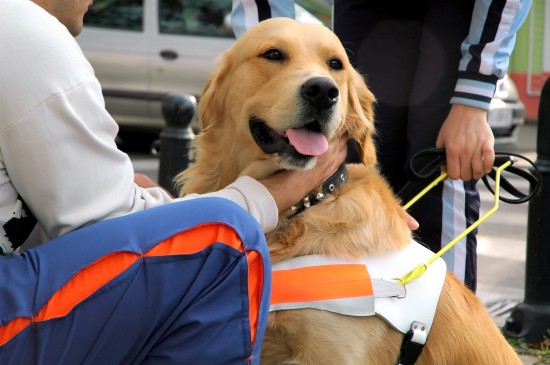

While many dogs are outgoing, friendly with everyone and actively seek out new experiences and adventures, some of our faithful companions are rather more speculative about things, to the point that they might actually display signs of fear or nervousness in new situations, or show fear of particular stimulus. This may be down to a simple case of a rather speculative personality, or due to past learned experiences or irrational associations with things that have scared them in the past.
It is often possible to work with a fearful dog and over time, encourage them to become bolder or more confident about the things that alarm them, and this can often take a reasonably long time, possibly weeks or even months, to achieve.
But what does it mean if a dog that was previously fearful of a certain situation or event suddenly becomes bolder, and takes it in their stride as if they never even had a problem in the first place? This does happen on occasion too, and while of course this is almost always a welcome development, it often leaves dog owners wondering exactly what happened to trigger the change!
In this article, we will look at some of the reasons behind why a previously fearful, shy or nervous dog might suddenly become bolder. Read on to learn more!
You might already have spent a long time working on getting your dog used to certain stimulus and becoming less fearful, and if your dog has a sudden epiphany that you were right all along and there really was nothing to fear in the first place, this might be because your work has paid off!
As part of trying to condition your dog to become less fearful and shy about certain situations, you have probably already gone through the process of demonstrating that there is nothing to fear, and giving your dog praise and treats for facing up to their irrational worry, especially if it was only a minor concern in the first place.
Conditioning a dog involves taking a stimulus that they are afraid or wary of and giving them positive associations with it; such as lots of treats- and one day, they might simply reach the point where the treats win out and your dog associates the stimulus with good things instead of fear!
Even the most confident of puppies will go through a developmental stage at around four months old when they may suddenly begin to exhibit fear or uncertainty of new situations, or in some cases, situations that they are already used to and never had a problem with before! This is a passing stage that puppies outgrow, and they will not retain their irrational fears for long once they get a little bit older. This can, in some cases, result in a younger dog appearing afraid or unhappy about something one day, and yet literally as soon as a day later, totally taking it in their stride!
Dogs are very empathic animals, who soon pick up and channel the mood and feelings of their owner or handler. This means if you have been stressed, tense or upset on one occasion when your dog is around, whatever else was happening at the time might then become tied in, in your dog’s mind, with these same feelings, causing them to fear it in the future.
This can cause a situation where your dog displays nerves or fear about something very run of the mill, and you are not sure why! However, assuming that when you face this same situation with your dog on later occasions you are calm, cool and happy, your dog will again pick up on this feeling, and over time, become to associate the same stimulus with things being ok.
Once your dog reaches maturity at 7-8 years old, their brains will then enter a natural progression of decline that is a natural part of old age. This is the same for people, and just as with people, brain aging and its associated conditions can have a significant effect on the ways that your dog reacts to things, and in the case of canine dementia, can literally cause your dog to forget about some of their previous fears!
Almost 50% of dogs over the age of ten will be undergoing some level of dementia onset, even if it is very, very mild and slow, and so this is certainly one consideration to bear in mind if your dog is a little long in the tooth.
This can of course be a cause of confusion for dog owners, but it can give you an insight into the beginnings of your dog’s brain aging, and give you the chance to talk to your vet about ways in which you will be able to support your dog into old age.
 Taking Care Of Your Cat’s Paws And Claws
Taking Care Of Yo
Taking Care Of Your Cat’s Paws And Claws
Taking Care Of Yo
 Pancreatitis In Cats
Pancreatitis In C
Pancreatitis In Cats
Pancreatitis In C
 How Do Working Dogs Communicate With And Alert Their Handlers Of Things?
How Do Working Do
How Do Working Dogs Communicate With And Alert Their Handlers Of Things?
How Do Working Do
 8 Very Unusual Cat Facts!
8 Very Unusual Ca
8 Very Unusual Cat Facts!
8 Very Unusual Ca
 Myths And Misconceptions About Ferrets - True Or False?
Myths And Misconc
Myths And Misconceptions About Ferrets - True Or False?
Myths And Misconc
Copyright © 2005-2016 Pet Information All Rights Reserved
Contact us: www162date@outlook.com